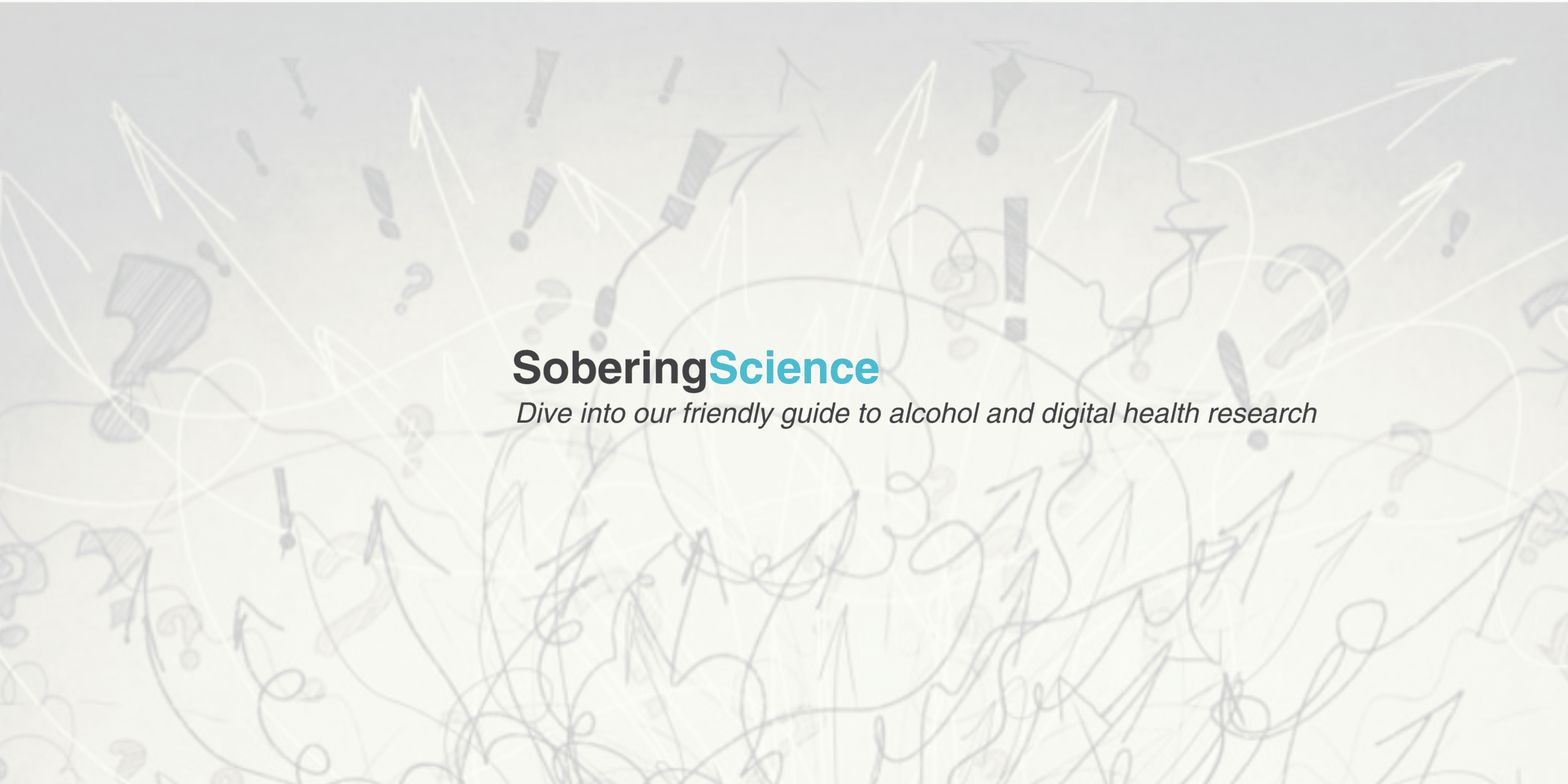
Daily drinking: a problem or not?
“Does drinking every day mean I have a problem?” This is a tough question for anyone to ask themselves, but it’s worth asking because the answer may surprise you.
Around 5% of Australians drink daily. The truth is, if you drink every day – even just one or two drinks – you’re more likely to be dependent than people who drink less frequently.
Of course, there are degrees of dependence from mild to severe, but even if you’re only a glass-a-day drinker, you’re priming your system to expect a daily hit of dopamine, the “feel-good” chemical. And you are pushing up your baseline a little every day, which means you need more alcohol to feel the same buzz.
Here’s why. It can take up to 24 hours for alcohol to completely clear your system, which means if you’re drinking daily, you’re never giving your body a chance to be alcohol-free, and that can impact on your brain’s neurochemistry.
It’s the law of diminishing returns and it can be a tricky cycle to break. That’s why alcohol-free days are so beneficial. They act as a circuit breaker, giving your body and mind a chance to reset.
Alcohol-free days can also help you sleep better, reduce anxiety and cut your risk of developing long term health problems like heart disease, stroke, diabetes and several types of cancer. To reduce the risk of developing these long-term health problems, it's best to stick to the national guidelines – limit your drinks to less than 10 a week and no more than 4 on a single day.
If you currently drink daily, you could try to introduce one or two days off and gradually increase it. For some people who are heavily dependent, quitting cold turkey can be dangerous so always consult your doctor first. If you’re already having alcohol-free days, see if you can add more – you may even find the benefits are so great you want to try an extended break.
Everyone is different. They key is to be mindful of how much you drink, and why. Because you can’t change what you don’t understand.
How can I tell if I’m dependent on alcohol?
Some common signs and symptoms are:
- Drink more than planned or intended
- Have trouble cutting down or stopping even when you want to
- Have cravings or a strong urge to drink
- Have trouble with relationships, work, finances or the law because of drinking
- Drinking causes or worsens physical or mental health problems
- Keep drinking despite knowing the negative consequences
- Need to drink more to get the same effect as before
Another way to find out about where you’re at with your drinking is to take a simple quiz that can assess your drinking patterns and potential risks. Our online assessment is easy, takes only 5 minutes and can help you get started.
If you’re ready to change your relationship with alcohol, there are many resources and support services available to help you improve your health and wellbeing. You don’t have to do it alone. You can start by talking to your GP and joining a supportive community, such as Daybreak, a non-judgemental and anonymous space where you can find like-minded people and begin your journey of change.










I found I was drinking more after my brother died two years ago so I’ve made a lot of changes. I am 8 weeks without a drink – its really weird, especially on Friday nights. But I kinda like it
*****Content Warning: Death*****
********************************
Congrats….. It’s not easy but we strive and fight for our existence. It was a wake up call when I was taken to ER, I was literally dying. I am struggling but still hanging in there
I’m 63 and I’ve just had my Prostate Cancer removed and it was a horrible experience. I had a catheter in for 9 weeks. The doctor botched the operation. I have been a heavy drinker for the past 25 years. Now I drink 2 liters of white wine every night. I have a big chance of having a reoccurrence of the Cancer again and I’m just drinking myself to death now. I want to stop and get healthy but I’m struggling with alcohol dependency.
Hi Mark,
Thank you for sharing your experience. We recognise that it takes a lot of courage to do this.
To start off with, it would be a good idea for you to talk with your GP about quitting to make sure you have the right tools and supports to quit safely. You will likely experience a lot of changes, so it’s important to have the support of a medical professional to guide you through giving up alcohol safely.
You might also consider joining our Daybreak community where you can find a support of a different kind and people that you can talk with anonymously who can relate to what you’re experiencing. Daybreak members tell us that they find the community very supportive and a boost when they need it most. Here’s the link: https://hellosundaymorning.org/daybreak/
All the best Mark.
Over a two and a half year period, Full of family stress, I found that I was drinking most days. It added up to 2 / 2 and a half bottles per week. I was aware of the guidelines and raised the matter at a GP check up. He snorted and said: Hmph, I have patients that drink more than that in a day!” This terminated the conversation as I felt shamed and a time waster.
Anyway, after a couple of months of mulling it over, I went alcohol free and have now been so for 3 months. The family situation remains the same and I still feel chronically stressed but at least not about drinking. Discovered hello Sunday morning 5 days in and am grateful for the support.
Heather: there is every possibility that your doctor knows he’s drinking much more than is good for him. His reply sounds pretty defensive! Regarding your own situation, I’ve used alcohol to deal with family stress on a routine basis for much of my adult life. Never once did it do anything more than push the problem onto the next day. It feels like a fix in the moment, but it isn’t really.
I drink everyday and more than I should. I start craving for a drink about 2:00 PM through to about 6:00PM.Once I take the first drink
I don’t want to stop.I believe I’m addicted to vodka.
How do you train your brain that you really don’t need a drink?
Hi Jack,
It would be a good idea to talk with your GP about quitting to make sure you have the right tools to quit safely – and so that you have ongoing support services available to you.
You may also find this article useful: https://hellosundaymorning.org/2024/08/15/changed-your-drinking-recently-heres-how-you-can-stick-to-the-plan/
You might also like to join our Daybreak community, where you can talk to others anonymously about your experience: https://hellosundaymorning.org/daybreak/
I drink occasionally but do not where to stop. I want to quit completely.
Hi Unmesh,
It would be a good idea to talk with your GP about quitting to make sure you have the right tools to quit safely. You may also like to join our Daybreak community where you can speak to and gain support from other people who are also wanting to quit or have quit alcohol.
Daybreak: https://hellosundaymorning.org/daybreak/
I’ve been doing the drink tracker everyday since before Christmas and I average 40-50 drinks a week despite trying to reduce. A bit alarmed to read that 10 drinks a week is recommended amount.
Hey Richard,
I don’t know how old you are or how long you been drinking for but I was a heavy drinker for 15+ years I averaged over a 100 drinks a week.
It took 3 near life death experiences and the loss of everything I loved and cared about before my brain clicked.
I have just made 880 days booze free and I have had to work my arse off to earn some of the everyday things we take for granted not to mention all of the health benefits. Good luck brother..
*****Content Warning: Death*****
********************************
I remember the near death experiences of myself, the frantic efforts the doctors made to stabilize me. I watched one video of myself in the ER, I cried and then stopped watching at a point where one female doctor remarked that they were losing me. I did rehab, was clean for a year and then I backslid. I struggle a lot with PTSD and of which I find myself back to drinking and abusing drugs
trouble is i simply can’t get to sleep without having a drink – i know i need to reduce but my body has become used to the alcohol.
Hi Julie,
After quitting alcohol, sleep issues can worsen before improving. Many of our Daybreak members report improved sleep after one month of quitting alcohol. Meanwhile, you might find these articles helpful:
– Sleep hygiene tips from sleep experts at the Sleep Health Foundation https://www.sleephealthfoundation.org.au/sleep-topics/sleep-hygiene-good-sleep-habits
– Do alcohol and sleep mix: https://hellosundaymorning.org/2024/08/02/do-alcohol-and-sleep-mix/
Hang in there.
Thank you for this article. I have 2-3 drinks per day but I know that it makes me tired and I am less focussed than when totally sober. I would like to do more AF days then stop altogether.
Thanks again
Nev